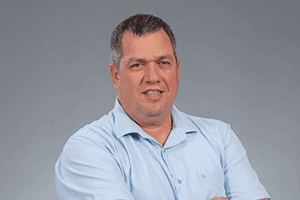
- This event has passed.
GRASP Seminar: Shlomi Laufer, Technion – Israel Institute of Technology, “Enhancing Surgical Skill Assessment Through Computer Vision”
September 11, 2024 @ 2:00 pm - 3:00 pm
*This seminar was held in-person in Levine 307 as well as virtually…
ABSTRACT
Medical education traditionally employs the apprenticeship model, where trainees learn directly under the supervision of experienced practitioners. This model necessitates close follow-up and typically provides extremely subjective and non- standardized feedback. Over the years, efforts to introduce more objective assessment tools have gained momentum, although these tools often remain time-consuming and can still be influenced by subjective evaluations. Recently, the integration of motion sensors with medical simulators has provided a more objective form of feedback. However, they are typically limited to different aspects of motion economy. In this presentation, I will explore how advancements in computer vision can be utilized to create more informative assessments and feedback on surgical skills. I will also briefly discuss automatic assessment of anesthesiologists. Additionally, I will demonstrate how introducing cameras into the operating room provides a new avenue
for analyzing surgical workflows.

